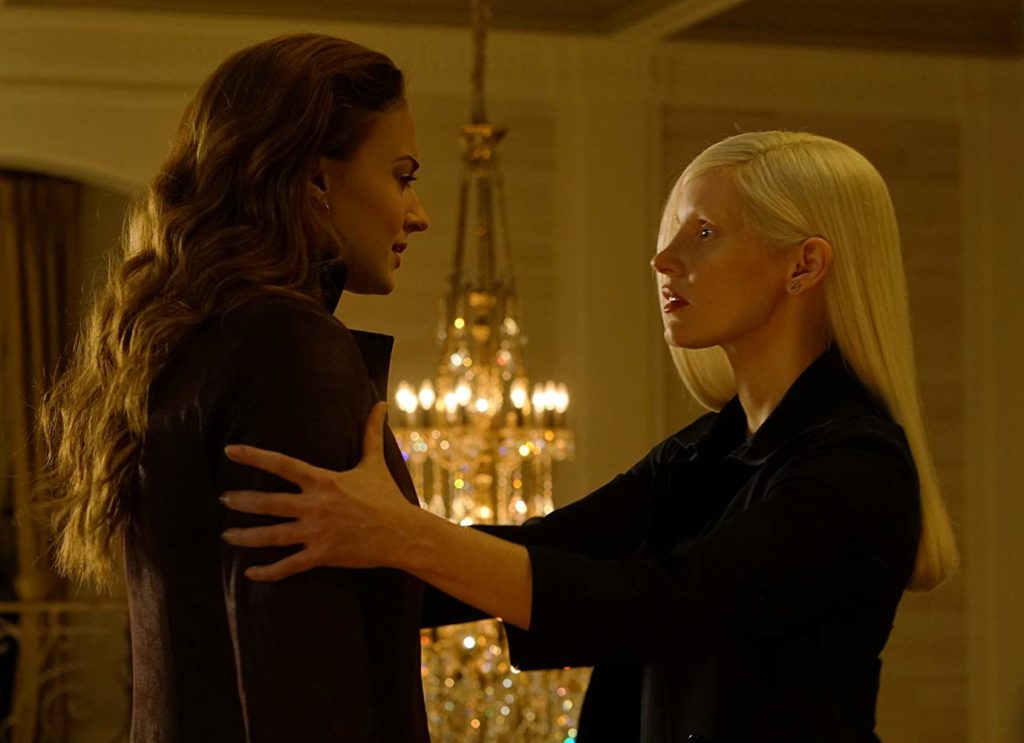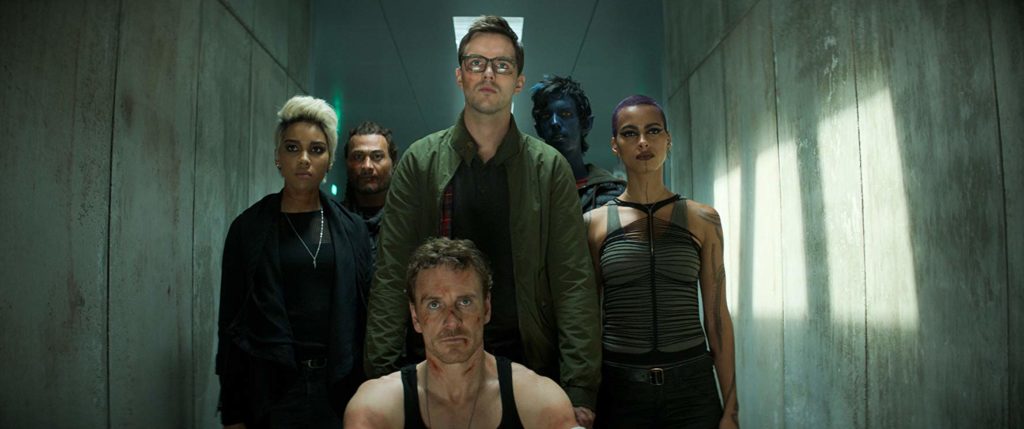The last X-Men film before Fox become part of the Disney canon, the popular Dark Phoenix storyline has been floated around the franchise for some time. There is a now or never feel to X-Men: Dark Phoenix, the film launching itself into a situation with both global and local stakes. It makes for an interesting character investigation – something the franchise has a strong history of – but there are one too many missteps plaguing the franchise’s final bow.
Following a space rescue mission, Jean Grey (Sophie Turner) is imbued with the power of a mystical cosmic force that she struggles to control. She emerges as a threat to the X-Men as she loses herself to the Phoenix force; as she leaves the Academy in an attempt to protect her friends from herself, she meets Vuk (Jessica Chastain), who promises her control over her new power. However, Vuk is a member of an alien race whose home was destroyed by the Phoenix force, and she believes that the force could help her rebuild her world – at the expense of humanity, naturally.

Other than some explosive set pieces, most of the tension in Dark Phoenix is of a more verbal, introspective nature. Charles Xavier’s (James McAvoy) authority and motivations are challenged like never before, with even the very reason for the X-Men’s existence coming into question, his biggest challengers being Raven (Jennifer Lawrence) and Hank (Nicholas Hoult). Meanwhile, the relationship between Jean and Cyclops (Tye Sheridan) gives the story an emotional core and Michael Fassbender, as always, demonstrates that he has the charismatic anti-hero act down to a fine art.
However it’s Turner who provides the film its fiery heart, carrying the weight of Jean’s transformation with conviction. The whole cast deliver nuanced performances, as the turmoil of a family ripped apart makes for compelling drama.
Yet the story never manages to break free from the redemptive character arc, which makes the final moments a bit predictable. Up until that point however, the action feels consequential and leaves lasting impacts. The influence of Logan (2017) is visible in some of the gorier moments (one scene echoes Wolverine’s death almost exactly) and the whole affair feels heavier than in previous films. It feels less ridiculous than X-Men: Apocalypse (2016), grounded more in family turmoil and personal grief.

That being said, Dark Phoenix does share one of Apocalypse’s major weaknesses. The villain is tragically forgettable. Chastain is armed to the teeth with steely looks and weighty statements, but her eyebrow-less super villain is a blight on the story. Burdened with the clunkiest dialogue and an unconvincing motivation, she is an unwelcome distraction from the far more interesting Jean.
Dark Phoenix suffers badly from aspects that aren’t sinfully bad, but which punch far below what other films so far this year have delivered. The scale, gravitas and visuals of Avengers: Endgame are not even remotely matched. The ending especially feels too CGI-happy, and for all its bright lights feels very dull, minus one subtle, beautiful use in the film’s final shot. The fight sequences too, while impressive, lack the consistency and thrill factor of John Wick: Chapter 3. Too much of the film feels just okay, which is not what you want from what is meant to be a rousing franchise finale.
Dark Phoenix relies heavily on its characters to try and be the X-Men’s last hurrah, but too much is bringing the film down for it to be remarkable. All in all, the franchise has petered out with a film that is neither its best nor worst entry.
Dark Phoenix is out in UK cinemas now, distributed by 20th Century Fox.
